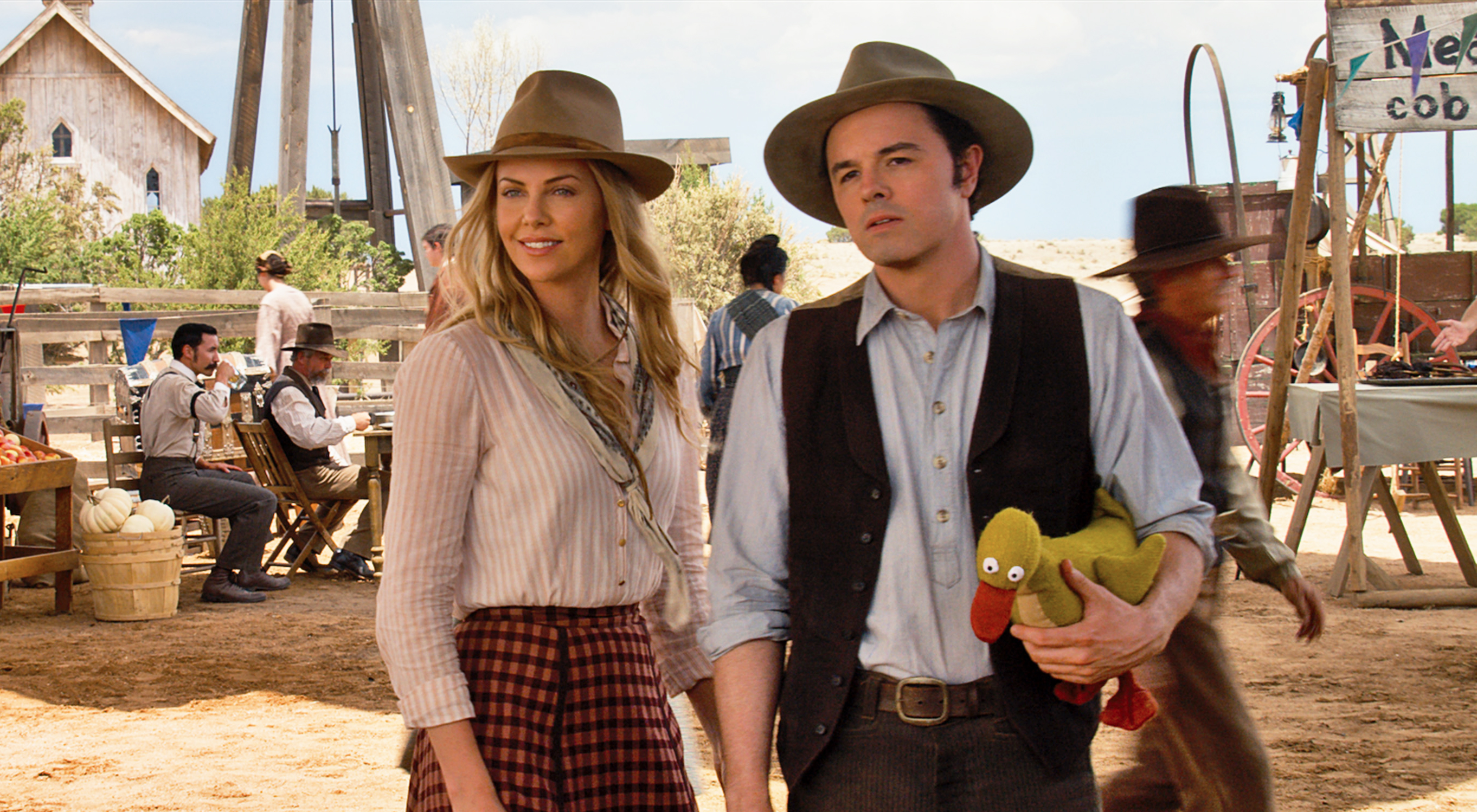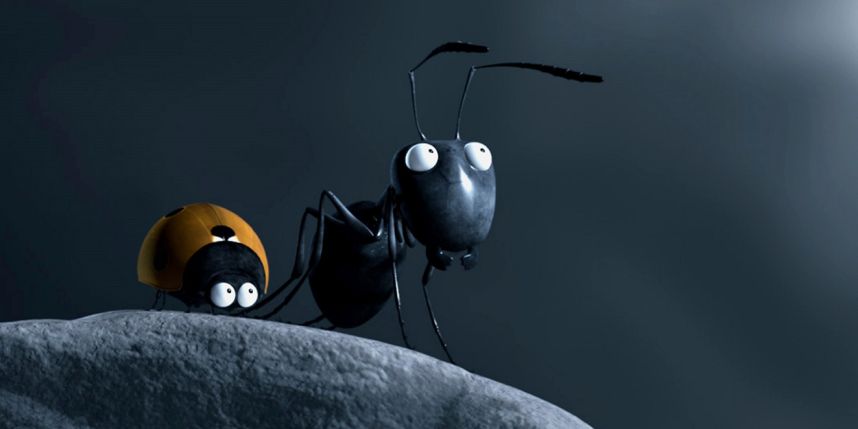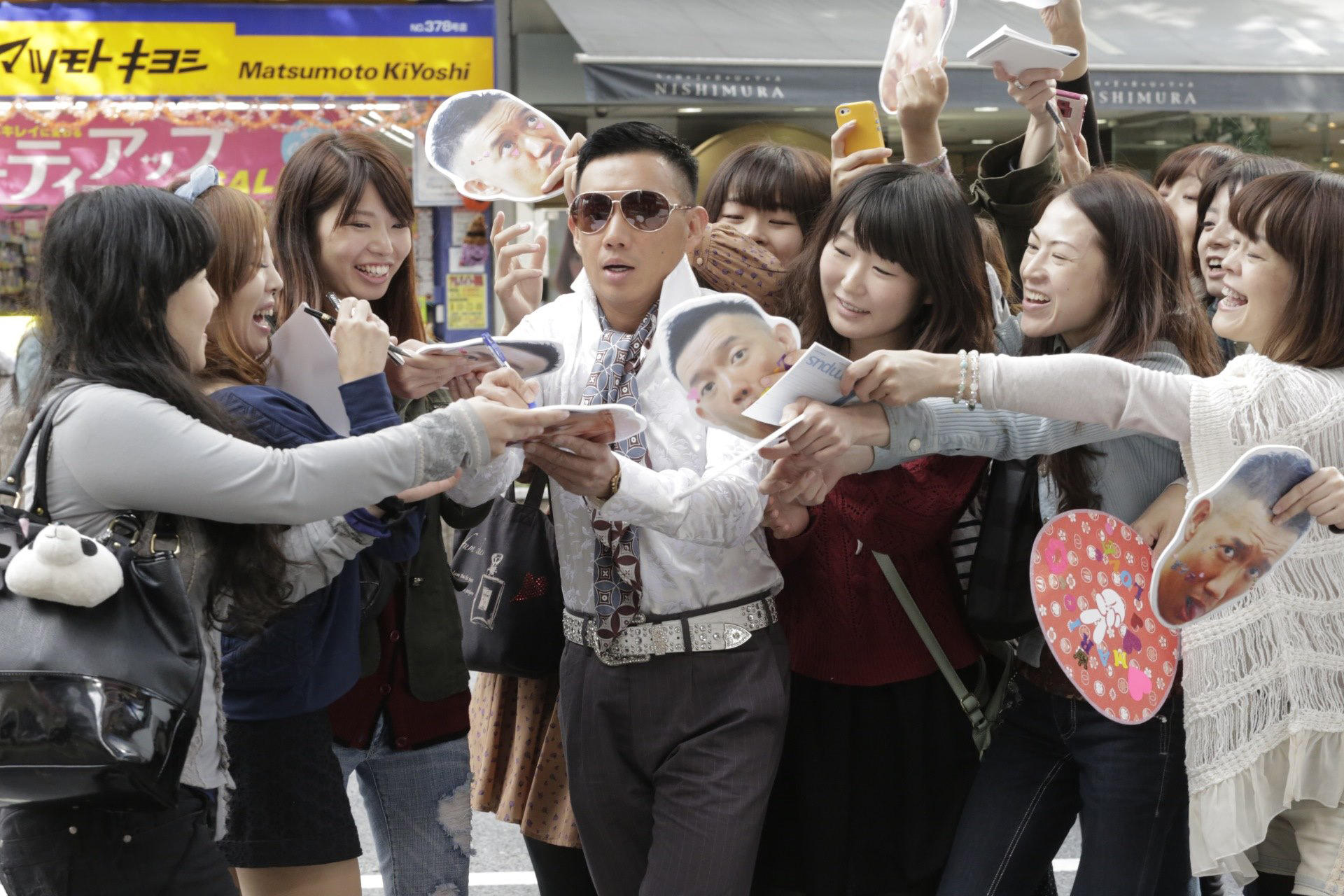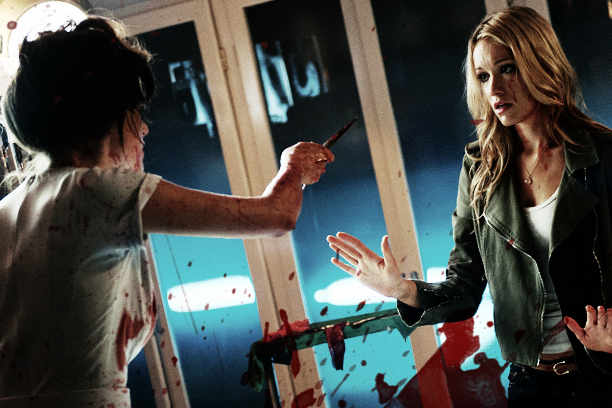GOAL OF THE DEAD
 Tuesday, June 10, 2014 at 2:18PM
Tuesday, June 10, 2014 at 2:18PM Stars: Alban Lenoir, Charlie Bruneau, Tiphaine Daviot, Ahmed Sylla, Bruno Salomone, Patrick Ligardes, Xavier Laurent and Sebastien Vandenberghe.
Writers: Tristan Schulmann, Marie Garel Weiss, Quoc Dang Tran, Izm and Laetitia Trapet.
Directors: Benjamin Rocher and Thierry Poiraud.
SCREENING AT THE 2014 SYDNEY FILM FESTIVAL ON MON JUNE 9 AND SUN JUN 15. DETAILS HERE.
Rating: 2.5/5

The scares are too few and the satire too meagre in Goal of the Dead, despite a roster of behind-the-scenes contributors who have plenty of game time when it comes to convincing genre works. Football fans may get a giddy thrill from seeing their passion filtered through the bloodthirsty mindset of a zombie apocalypse, but there is little sports action and even less genuine entertainment value in this gory Gallic romp.
Clearly inspired by the lunacy of the Edgar Wright/Simon Pegg brilliant collaboration Shaun of the Dead, this simply-plotted tale meanders along at a canter rather than the full sprint required. The pretentiously-titled top-tier Olympique de Paris football team are making their way deep into the provinces for a lopsided match against the non-pro hackers from Caplongue. For ageing midfielder Sam Lorit (Alban Lenoir; pictured, top), it is a return to the hometown that hates him, the locals furious he abandoned them for the big city lights 17 years ago; everyone from the quartet of drunk ne’er-do-wells known as The Coyotes to little children in the streets have it in for him.
None hold more of a grudge than Sam’s childhood friend Jeannot (Sebastien Vandenberghe), who was left behind when Sam hit it big. Jeannot’s doctor father has built his lad into a mountain of vengeful muscle with illegal injections but, on the eve of the game, he goes a needle too far; Jeannot becomes a raging, bloody monster, bent on murder and mayhem as he races toward the stadium in the ultimate state of ‘roid rage’.
The great zombie works have always had one eye on potential social commentary while delivering the blood-splattered scares and it seems a no-brainer to focus on the big-business world of professional football, so ripe for taking down a peg or two. But co-directors Benjamin Rocher (2010’s undead bloodbath, The Horde) and Thierry Poiraud (2004’s comedy-horror oddity, The Return of James Battle) stumble from the set-up, dragging out character definitions and narrative elements to extreme lengths and distancing their audience in the process. A disregard for logic, even by horror movie standards, is the film’s first misstep; in one daft scene, a key player is fatefully left behind after the team bus stops, his absence unnoticed until the team is in the dressing room.
Support characters include an ambitious but naïve journalist (Charlie Bruneau), a star forward whose value is waning (Ahmed Sylla, the film’s best asset), a douche-bag player-agent (Bruno Salomone) and a pretty young thing (Tiphaine Daviot) who carries the burden of Sam’s soccer-groupie past. The elements are all in place for a ripping satire skewering football and its relationship with the media, player profiteering and the immorality of the modern sports industry machine, but its six writers (!!) and two directors conjure little more than rote jump-scares and splashy effects.
The decision to run the film as two distinct 60-minute halves (get it?) is cloying; indulging in an entirely fresh credits sequence mid film undoes what little momentum Goal of the Dead has generated. (The film was released in two parts in its homeland, but surely global distributors could have prepped a palatable cut for the international market). If non-fans think soccer can run a tad long and get dull, the 120-minute version screened at the Sydney Film Festival is not for them.









